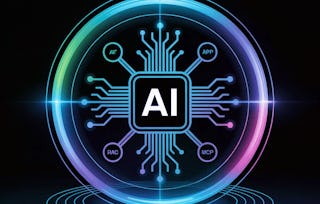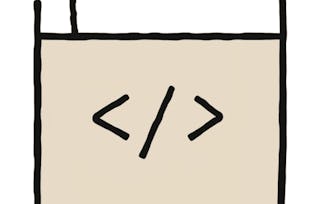This course teaches developers how to build applications with Claude's API. Through seven modules, you'll learn API fundamentals, prompt engineering, tool use, retrieval systems, and agentic workflows. By the end, you'll be able to build production applications that use Claude for tasks ranging from simple requests to autonomous agents.

Gain next-level skills with Coursera Plus for $199 (regularly $399). Save now.

(16 reviews)
Recommended experience
What you'll learn
Build applications where Claude uses tools to interact with external systems and data
Implement retrieval systems and autonomous workflows for complex tasks
Skills you'll gain
Details to know
November 2025
14 assignments
See how employees at top companies are mastering in-demand skills

There are 7 modules in this course
In this module, you'll learn the fundamentals of working with Claude's API to build AI-powered applications. You'll start by understanding the different Claude model variants and how to choose the right one for your use case. Then you'll learn to authenticate, make requests, and handle responses.
What's included
10 videos7 readings2 assignments
In this module, you'll learn systematic approaches to creating and testing effective prompts for Claude. You'll start by building evaluation pipelines that let you test prompts objectively using automated grading methods. You'll learn to generate comprehensive test datasets that expose both strengths and weaknesses in your prompts.
What's included
12 videos2 readings2 assignments
In this module, you'll explore Claude's advanced features and learn to build applications where Claude can call functions and interact with external systems. You'll start with features like extended thinking for complex reasoning, image and PDF support for multimodal applications, and prompt caching to reduce latency and costs.
What's included
22 videos2 readings2 assignments
In this module, you'll learn the Model Context Protocol, a standardized way to build servers and clients that provide tools and resources to Claude applications. MCP lets you create reusable integrations that work across different applications instead of building custom tool implementations for each project.
What's included
10 videos3 readings2 assignments
In this module, you'll learn to build retrieval augmented generation systems that provide Claude with relevant information from your documents and data. RAG addresses Claude's context limits by retrieving only the relevant portions of large document collections based on user queries.
What's included
9 videos2 readings2 assignments
In this module, you'll learn to use Claude Code for development tasks and build applications using Computer Use for automated interface interactions. Claude Code accelerates development by helping with code generation, refactoring, debugging, and documentation tasks.
What's included
8 videos2 readings2 assignments
In this module, you'll learn to design and implement agentic workflows that handle complex, multi-step tasks. You'll start by understanding when to use workflows versus simple prompts, then learn three core workflow patterns: parallelization for executing multiple tasks simultaneously, chaining for sequential processing where outputs feed into subsequent steps, and routing for conditional branching based on intermediate results.
What's included
7 videos2 readings2 assignments
Instructor
Offered by
Explore more from Software Development
 Status: Free Trial
Status: Free Trial Status: Free Trial
Status: Free Trial Status: Preview
Status: Preview Status: Preview
Status: PreviewAnthropic
Why people choose Coursera for their career




Frequently asked questions
This Coursera version includes interactive features not available in our standalone content, including Coursera Coach, which is an AI-powered learning assistant that can answer your questions, break down complex concepts, and provide personalized guidance as you learn. You'll also have access to additional practice quizzes and assessments that help reinforce key concepts and let you test your understanding before moving forward. These enhancements transform the passive video experience into an interactive learning journey with real-time support and feedback.
You are expected to have basic knowledge of Python, including the ability to locally run a Python Notebook.
To access the course materials, assignments and to earn a Certificate, you will need to purchase the Certificate experience when you enroll in a course. You can try a Free Trial instead, or apply for Financial Aid. The course may offer 'Full Course, No Certificate' instead. This option lets you see all course materials, submit required assessments, and get a final grade. This also means that you will not be able to purchase a Certificate experience.
More questions
Financial aid available,





